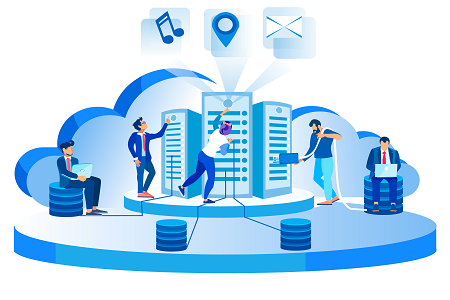Salient IT Services › Data Backup Davis
What you need to know about data backup in Davis
When it comes to protecting data, possibly the first thought which comes to mind is data security. This is, of course, hugely important, but it’s actually only one of the risks. Other risks include erroneous deletion (which could be a genuine accident) and corruption. Good data backups can help to protect against all kinds of threats to your data. With that in mind, here is what you need to know about data backup in Davis.
If you’re still backing up to physical devices, you should probably rethink
These days, the only real benefit to backing up to a physical device is that it can allow you to backup and restore even without a reliable internet connection. While this may still be an issue in remote areas, it’s unlikely to apply to any SMB in Davis. For most companies in urban areas, it’s far more useful to be able to avoid the hazards of transportation and storage and to be able to restore remotely if need be.

p style=”text-align: justify;”>Data backups are a core part of any disaster recovery solution
Data backups are when you bulk-copy files so that you can bulk-copy them back into your systems if necessary. This is different from data archiving, which relates to saving specific files for specific reasons, usually related to the law and/or compliance programs. There can still be an argument for undertaking data archiving to physical devices, although even here the cloud is now often used either instead of physical devices or as well as physical devices.
Needing to recover from a backup is not, in and of itself, a sign of a disaster, just an issue. If, however, you do experience a disaster, then you will definitely need your data backup to recover from it. You will also need the necessary tools for your staff to be able to make use of the data, for example an operating system and applications.
This is another reason why cloud data backups are taking over from traditional data backups. If you backup your data to a cloud, you can add everything else you need to recover from a disaster, even if you don’t have access to your main work premises. You can also enable staff to work from home (or another remote location), either for preference or out of necessity (such as during emergencies of whatever nature).
You may be able to backup data to a public cloud even if it’s sensitive
These days, it is standard practice to encrypt data before transporting and/or storing it. In other words, sensitive data is encrypted on its journey through the internet and stays encrypted on the public cloud servers. If it’s needed, it’s transported back in its encrypted state and only decrypted once it reaches your servers. This can be a cost-effective way of backing up your data, however it does raise the question of what you would do in a disaster-recovery situation.
Assuming that you are already working in a private cloud, or that you are, at least, open to working in a private cloud, one option would be to have a (second) private cloud “on standby”, to be spun up in a disaster scenario. You would then transfer your data from the public cloud to the private cloud and start work again. Obviously, you’d want to test this process thoroughly before relying on it for real.
Another option would, of course, be just to back up your data to a private cloud in the first place. Essentially, the choice would probably come down to cost-effectiveness.
Data backups need to be combined with a robust archiving system
Some people might say that the one advantage of backing up to physical media, as opposed to the cloud, is that, at present, physical storage is very affordable, so you can just keep backing up without having to think about the quantity of data you are producing. In theory, this is true, in practice, this approach could get you into all kinds of trouble, since it would indicate you were failing to keep tabs on what data you were holding and why, which is fundamental to modern data protection.
This means that you need to have a robust process to identify what data is actually being used and what data is just lying dormant and to have a process by which the later is either deleted or moved into archive. Ideally, this process will automate legal requirements. For example, if you need to hold onto data for a certain length of time, it will automatically be archived and then either flagged for deletion or automatically deleted further down the line.
If you’d like to speak to a reputable and experienced data backup provider in Davis, please click here now to contact Salient IT.



